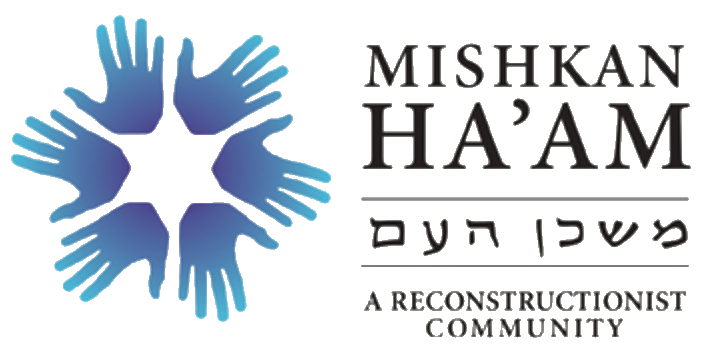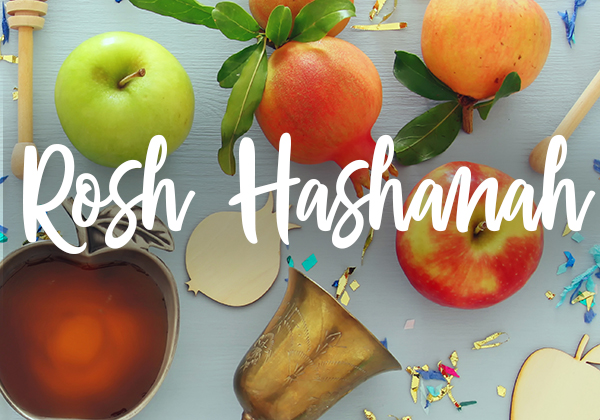Rosh HaShana, the Jewish New Year, focuses on God’s judgment and ultimately on a new beginning for humanity: hayom harat olam—the day the world is born anew. The major themes of Rosh Hashana are the creation of the world, the sovereignty of God, divine judgment and remembrance. These themes present an opportunity to identify the creativity that persists every day—the sovereignty of God as the power or energy in the universe that makes for a renewal of humanity, of the world and of community. It becomes the responsibility of humanity to make manifest “God’s Kingdom” on earth through acting upon our moral principles and values in order to bring about justice, peace and beauty for all people. (from reconstructingjudaism.org)
ROSH HASHANAH 2024 Services Schedule
10/2-10/4
Erev Rosh Hashanah, Wednesday, 10/2 at 7:30 p.m.
Day One, Thursday, 10/3 at 9:45 a.m.
Day Two, Friday, 10/4 at 10:00 a.m.
Services take place at: The Park Hill Racquet Club, (High Holiday Tent), located at 2 Glenbrook Ave., Yonkers, NY
From the North or East: Saw Mill Parkway (or Cross County Parkway) to Rumsey Road exit. Rumsey Road south to fork, about 1 mile. Right onto Park Hill Ave. Proceed 4 blocks. Right on Van Cortlandt Park Ave. at 4-way stop light, and 2 blocks up hill, past Glenbrook on left. Parking lot for Racquet Club is opening in chain link fence on left off Van Cortlandt Park Ave.
Customs and Symbols of Rosh Hashanah
Apples and honey: One of the most popular Rosh Hashanah customs involves eating apple slices dipped in honey. Ancient Jews believed apples had healing properties, and the honey signifies the hope that the new year will be sweet.
Tashlich: On Rosh Hashanah, some Jews practice a custom known as tashlich (“casting off”), in which they throw pieces of bread into a flowing body of water while reciting prayers. As the bread, which symbolizes the sins of the past year, is swept away, those who embrace this tradition are spiritually cleansed and renewed.
“L’shana tovah”: Jews greet each other on Rosh Hashanah with the Hebrew phrase “L’shana tovah,” which translates to “for a good year.” This is a shortened version of the Rosh Hashanah salutation “L’shanah tovah tikatev v’taihatem” (“May you be inscribed and sealed for a good year”).
Round challah: On Shabbat and other holidays, Jews eat loaves of challah dipped in salt. On Rosh Hashanah, the challah is often baked in a round shape to symbolize either the cyclical nature of life or the crown of God, and is dipped in sugar, for a sweet new year.
Rabbi Jonathan’s High Holidays Letter 5785

